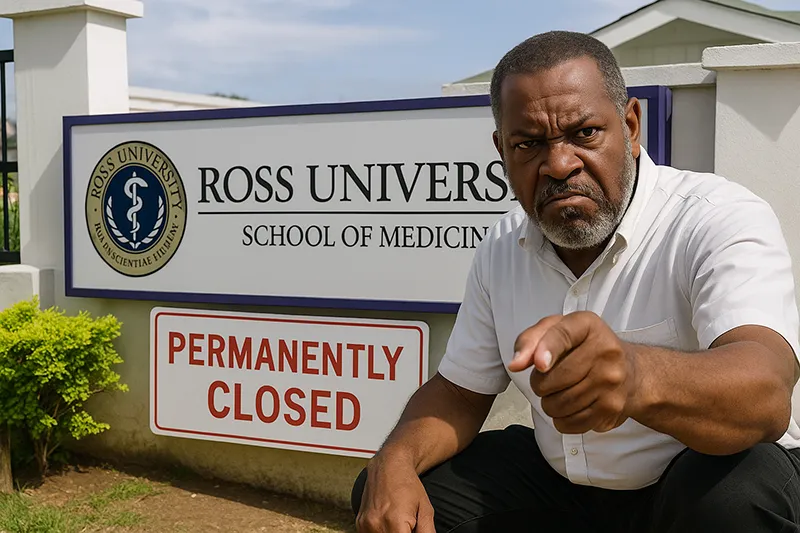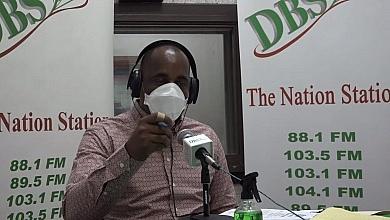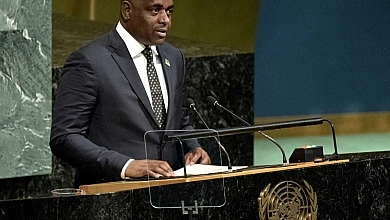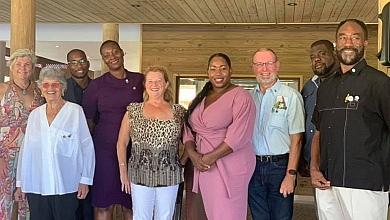Portsmouth Didn’t Deserve This: The Real Price of Losing Ross University

There are days when walking through Portsmouth feels like stepping into a memory that refuses to fade. The buildings are still there. The roads haven’t changed much. But the heartbeat of the place is gone. If you never knew what Ross University School of Medicine meant for this town, you might look around today and wonder why it feels so hollow. If you were here when it left in 2018, you’ll never forget the silence it left behind.
Ross wasn’t just a university. It was the pulse of Dominica’s Portsmouth Constituency, the anchor tenant in a complex economy that revolved around students, staff, vendors, landlords, and service providers. At its height, Ross enrolled over 1,400 medical students and employed more than 450 full-time and part-time staff, the vast majority of them Dominican. For nearly 40 years, Ross quietly supported an entire region without needing applause. And then it was gone.
The Numbers They Never Told Us
Estimates from independent economists and former government insiders place Ross’s economic contribution at between $30 million to $55 million EC dollars annually in direct and indirect impact. That includes housing, electricity, groceries, water, transportation, entertainment, and banking. It fed farmers, paid taxi drivers, filled apartments, kept utilities afloat, and gave Portsmouth a kind of stability that other towns envied.
Local utilities such as Dominica Electricity Services Ltd. (DOMLEC) and DOWASCO counted Ross among their largest institutional clients. FLOW and Digicel built mobile and internet plans around the school year. The Portsmouth Market, Picard Beach Cottage Resort, and countless small businesses, from laundromats to barbershops to lunch stand, had one predictable customer base: Ross students and faculty.
This wasn’t charity. It was community-building, powered by foreign investment, local partnerships, and mutual benefit. It worked. Until it didn’t.
The Collapse After the Storm
When Hurricane Maria devastated Dominica in September 2017, Ross was among the institutions hardest hit. Its campus in Picard suffered damage, and student safety became a concern. But the storm wasn’t the end, it was a test. What the government of Dominica did (or didn’t do) in the weeks and months after Maria determined what happened next.
Ross sought assurances. It wanted help rebuilding. It needed a clear, fast-tracked policy from the government about housing, land use, and health facilities. It got none. Reports have since surfaced that the Prime Minister failed to meet with Ross officials even as they requested talks. While Barbados Prime Minister Mia Mottley, just weeks into office, welcomed Ross with incentives, Dominica offered deferral.
Ross left quietly. Barbados gained an institution that had spent 40 years on Dominican soil. That was the moment Dominica’s development model cracked.
Portsmouth Became a Ghost Town
If you talk to former Ross landlords, many of them took loans to expand or build housing that met the university’s strict standards. Some invested over $300,000 EC dollars in renovations with the promise of long-term leases. After Ross left, those buildings became monuments of debt.
The once-bustling area of Picard, which housed the campus and student housing, now stands eerily quiet. Entire blocks of apartment complexes sit empty, deteriorating with rain, mold, and rodents. Landlords defaulted on mortgages. Some migrated. Others waited, hoping for a replacement that never came.
Taxi drivers, once making five or six runs a day, now idled for hours without work. Small restaurants shut down. Corner shops disappeared. Local food suppliers lost their biggest client. The Dominica Hotel & Tourism Association (DHTA) noted that hotel bookings in the north dropped by over 60% in the two years after Ross left. There was no transition, no buffer, no bailout. Only absence.
And Still, No One Took Responsibility
The government blamed the storm. It issued a few press releases. It promised diversification. But there was never an apology, never a postmortem, never a public discussion about what went wrong.
The United Workers Party (UWP) and other critics demanded transparency. They called for the release of any memoranda or agreements signed between Ross and the government. They asked: why was there no contingency plan? Why weren’t we proactive?
To this day, those answers haven’t come. Instead, millions have been spent on new construction projects with foreign contractors, while the existing Ross facilities sit underutilized. The AID Bank, which could have been used to finance redevelopment of the space or incentivize local entrepreneurship in Portsmouth, was never directed toward this purpose.
This Was More Than a Departure. It Was a Betrayal.
Dominica had a once-in-a-generation opportunity. For years, Ross offered a chance to become a regional hub for medical education, with tourism, agriculture, and light industry all benefiting from the university’s spinoff effects.
Instead of replicating that model with another university or creating a multi-sector redevelopment zone in Portsmouth, the government shifted focus to grand symbolic projects elsewhere, many of which had no local labour quotas and did little to address the north’s collapse.
Even now, no institution has replaced Ross in scale, value, or consistency. New offshore schools have been mentioned, but none have restored Portsmouth’s economy. No major diaspora reinvestment policy was enacted. No industrial diversification strategy for the north was implemented.
The silence from policymakers was loud. And Portsmouth heard it clearly.
The Town Is Still Waiting
To this day, Portsmouth remains in economic limbo. The community is surviving, but not thriving. Youth unemployment is high. New graduates leave. Skilled workers migrate. The Portsmouth Town Council, despite its efforts, has been given little budgetary control over large-scale development.
The Dominica Social Security (DSS) recorded a dip in north-based contributions in the years following Ross’s exit. Small farmers have not recovered their market linkages. Entire secondary supply chains, construction, telecom, cleaning, have collapsed.
The Dominica Youth Business Trust and Dominica Community Tourism Association could be empowered to repurpose the Ross site as a youth innovation center, agro-processing hub, or hospitality training school. But they haven’t been.
What Portsmouth needs is not nostalgia, it needs a plan.
This Country Cannot Afford Another Ross
Ross was more than numbers. It was a blueprint. It showed us that Dominicans could host, manage, and grow high-value institutions. It gave us a glimpse of what sustainable economic development looks like when paired with strong local participation.
We can’t let this happen again. We can’t let another anchor institution slip away because of policy paralysis, ego, or lack of vision. We can’t keep choosing silence over strategy. And we certainly can’t keep pretending Portsmouth is fine.
Dominica is too small and too vulnerable to absorb this kind of shock without introspection. It’s time we start planning like we’ve learned something from the past.
The People Deserve Better
This isn’t about blame. It’s about responsibility. The people of Portsmouth didn’t just lose income, they lost stability, community, and future.
They deserve better than hollow promises. They deserve access to financing to rebuild. They deserve clear policy on how the Ross facilities will be reused. They deserve employment guarantees in all future government projects. They deserve leadership that answers hard questions and doesn’t run from hard truths.
Portsmouth didn’t deserve this. And Dominica can’t afford to forget it.
This article is copyright © 2025 DOM767








